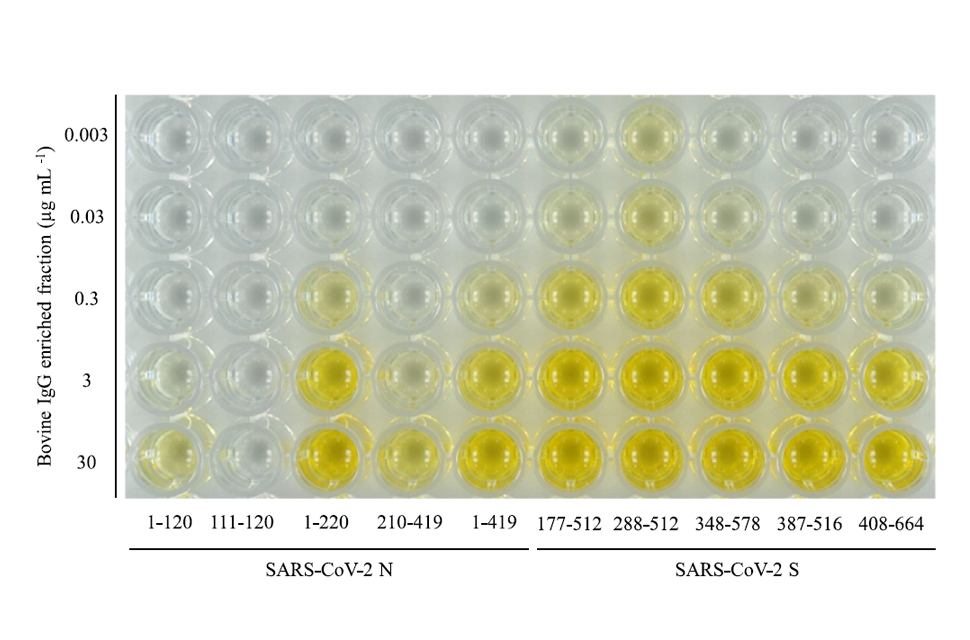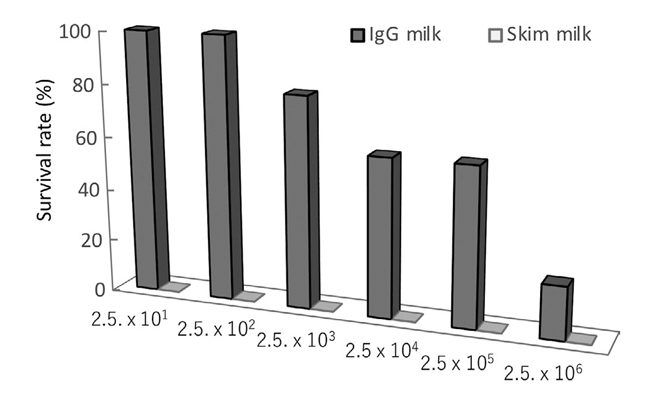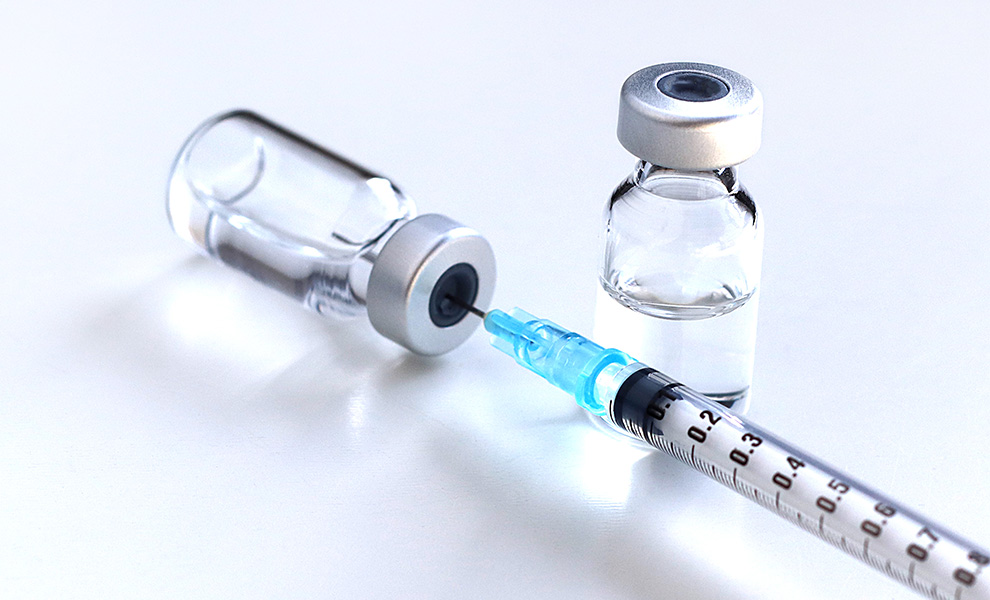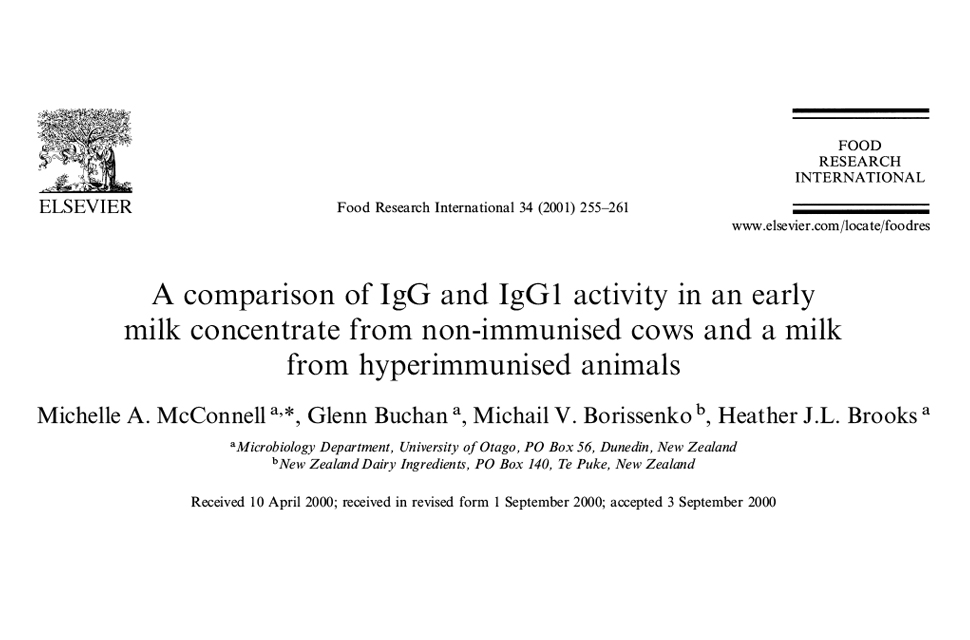IgG30+ Firstmil Premium
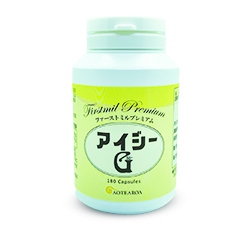
About IgG30+ Firstmil Premium
Evolution of AI (artificial intelligence) has made it possible to analyze big data, and the possibility of regenerative medicine such as gene cell therapy and iPS cell therapy is just around the corner. Infectious diseases will continue to be a major problem even in these innovative changes. Infectious diseases have historically claimed many lives due to the emergence of new infectious disease-causing bacteria every year.
IgG30+ Firstmil Premium contains more than 30% of IgG (Immunoglobulin G), s-IgA and Lactoferrin to protect your body from infectious diseases by improving your intestinal environment and keeping healthy immune system.
It is expected to increase the effectiveness against pathogen infections, food poisoning and opportunistic infections. For all age groups from children to the elderly.
The research by Juntendo University, School of Medicine
The IgG-enriched fraction of whey protein, researched and developed by New Zealand research institutes, contains antibodies against various human bacterial pathogens. It is also known to contain other antibodies against some viral antigens, including human respiratory syncytial virus, rotavirus, and influenza virus. However, it was still unclear whether IgG in whey protein recognizes human viral pathogens other than these viruses.
Juntendo University, School of Medicine in Japan studied and conducted on whether the IgG-enriched fraction of whey protein has cross-reactivity of IgG antibody to SARS-CoV-2 spike proteins (S) and nucleocapsid proteins (N). It was suggested that IgG-enriched fraction of whey protein may contain an antibody that neutralizes SARS-CoV-2 (Virus name: Coronavirus, Disease name: COVID-19) and expected to block spike proteins and prevent infection. As a result of the study, it was clarified that the IgG-enriched fraction in whey protein contains antibodies against SARS-CoV-2 spike proteins (S) and nucleocapsid proteins (N), suggested that IgG-enriched may neutralize SARS-CoV-2 (Virus name: Coronavirus, Disease name: COVID-19).
Mutant strain has 70% more spike proteins and research institutes in each country announced that the infection rate would be higher.
Spike proteins (S Protein) and Nucleocapsid proteins (Nucleoprotein)
Coronavirus has protrusions called spike proteins on its surface. This spike protein is called a coronavirus because it looks like a corona, or crown. The virus invade into the body when the spike protein acts on the receptors of human cells1.
Unlike other microorganisms, viruses do not have structures such as cell walls, cell membranes, cytoplasm or nuclei. It is structured with nucleic acid (DNA or RNA) of genes surrounded by a protein shell (capsid). This structure is called Nucleocapsid.
- Yuta Kyosei, Mayuri Namba, Sou Yamura, Rikiya Takeuchi, Noriko Aoki, Kazunari Nakaishi, Satoshi Watabe and Etsuro Ito. Proposal of De Novo Antigen Test for COVID-19: Ultrasensitive Detection of Spike Proteins of SARS-CoV-2. Diagnostics (Basel). 2020 Aug 14;10(8):594
Whey protein (New Zealand manufacturing)/ pullulan, calcium stearate, fine-grain silicon dioxide, coloring (kaoliang), (some ingredients contain soy and milk)
317 mg x 180 capsules
6 capsules daily with water

